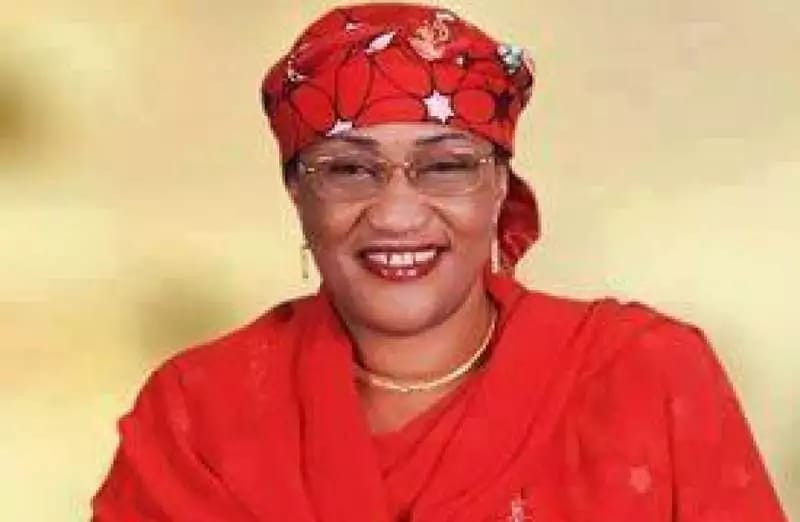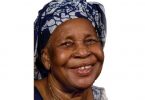Unarguably, abuse, abduction, molestation and other vices against the child are prevailing infractions to children’s fundamental human rights, especially in developing countries.
Sociologists observe that vulnerable children face significant barriers to their rights and there should be methods of checking the trend.
They express worry that such children are often denied access to basic services such as health and education while they are exposed to discrimination, sexual, physical and psychological violence.
Worried by this, the Ministry of Women Affairs and Social Development recently stated that the Nigerian society ‘is currently battling with high incidence of violence against children.’
Minister of Women Affairs and Social Development, Aisha Alhassan pointed out that efforts to end violence should start with the protection of young ones.
“Governments at all levels are making spirited efforts to ensure that this ugly phenomenon is brought to an end.
“There is the need to consolidate on the present momentum and redouble efforts to guarantee children’s rights to freedom from violence everywhere and at all times,’’ she said.
The minister lauded state governments that had made efforts in domesticating and articulating the Child Rights Act (CRA) in ensuring that children’s rights are protected.
She also said that the Federal Government, through the Ministry of Education, has inaugurated an intra-ministerial committee on preventing violence against children.
Similarly, Mrs Binta Bello, the Permanent Secretary in the ministry, said that there was the need for stakeholders to evaluate policies targeted at child development in the country.
“This is critical in view of the alarming cases of violence against children in recent times.
“We must pause and ask: does it mean that our policy responses are not well designed or structured? Are we not putting enough resources into the security sector?
“Are the key interventions not well implemented, are the planning, strategies not well targeted, is the awareness, sensitisation programme not directed at the right people?’’, she asked.
In his opinion, Mr Chidi Odinkalu, Chairman, Governing Council National Human Rights Commission, called for the review of sexual offence laws and policies to ensure the protection of children from violence.
According to him, sex abuse of children in schools is the most serious crime that requires strict punishment.
“This climate of impunity for sexual violence against children generally and in schools in particular is not a fate ordained by an unaccountable deity.
“It is a policy choice, we can change it and this will require concerted action by the government at multiple levels.
“Age of sexual consent is what is not clear under the law and many states willfully resist the implementation of the CRA.
“We need to re-examine our Victorian laws of sexual offences, foremost among which is the crime of rape; the distinction between rape and defilement must be eliminated,’’he said.
Odinkalu said that the Violence against Persons Prohibition Act which is currently operational in the FCT required to be spread across the country.
According to him, the National Assembly can do better with the bill on Sexual Harassment in Tertiary institutions currently under consideration before it.
He also said that the government needed to strictly prioritise accountability for sexual violence against children as a policing and law enforcement measure.
“There are few policing assets available for sexual violence and violence against children is generally viewed as a domestic issue and not a matter for rigorous application of laws.
“All that is required is the will and very limited skill to put the perpetrators away and make them face the consequences of their conduct,’’ he said.
In the same vein, a senior lecturer with the University of Nigeria Nsukka, Mr Uchechukwu Ozughalu, said that poverty had deprived not less 70 per cent of children in the country of their fundamental human rights.
“Children are highly deprived of their rights in the areas of health, proper nutrition, education, water and sanitation,’’ he said.
He solicited more child-friendly process among other interventions required by the government to alleviate the plight of children.
Sharing similar sentiments, Mr Jan Vandemoortele, an independent researcher, said that the implementation and consolidation of the Sustainable Development Goals (SDGs) would ensure poverty reduction.
He observed that countries within West and Central Africa lacked the sustainability of child-friendly policies.
According to him, poverty is about insufficiency while inequality is about hierarchy which leads to exclusion and marginalisation of some sectors of the populace.
Vandemoortele however said efforts by countries within the region would ensure achievement of the goals of SDGs.
As part of efforts to ensure that the right of child is protected, Save the Children, a non-governmental organisation, recently inaugurated a three-year campaign, tagged: “Every Last Child’’ to reach excluded children in the society.
The Country Director of the organisation, Mr Ben Foot, said the campaign would focus on the children left behind from the progress made by the Millennium Development Goals.
He said that the programme would also aim at reducing the number of children out of school and early marriages that had exposed young mothers to violence, lack of healthcare and education.
Collective effort of all stakeholders is however required as a task to safeguarding the rights of children, human rights activists counsel.












Leave a Comment
You must be logged in to post a comment.